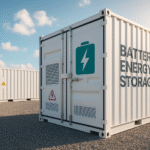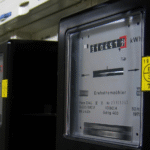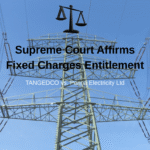In a significant boost for India’s energy storage ecosystem, the Rajasthan Electricity Regulatory Commission (RERC) has approved a 500 MW / 1 GWh grid-scale Battery Energy Storage System (BESS)—the largest of its kind in the country. With tariffs set between ₹2.21–2.24 lakh/MW/month, this pilot is poised to revolutionise renewable integration and set a template for future storage projects.
Under a Build-Own-Operate (BOO) framework, RRVUNL will procure storage capacity backed by central Viability Gap Funding—₹27 lakh/MWh from the Union Power Fund and ₹18 lakh/MWh from the Power System Development Fund. The BESS projects will be strategically implemented at key substations in Jaipur, Kota, Suratgarh, and Giral, selected based on high solar-wind density and critical grid balancing requirements.
Project Overview & Tariff Details
- Capacity: 500 MW power with 4-hour storage (~1 GWh) across multiple substations
- Tariff Structure: Approved uniform capacity-based charges ranging from ₹2.21 to ₹2.24 lakh/MW/month—currently the lowest such tariff nationwide
The following players were selected via a reverse-auction process initiated by Rajasthan Rajya Vidyut Utpadan Nigam Limited (RRVUNL) in late 2024.
| Bid Winner | MW | MWh | Tariff (₹/MW/month) | Tariff ($/MW/month) |
|---|---|---|---|---|
| JSW Neo Energy | 250 | 500 | ₹224,000 | $2,597 |
| Solarworld Energy | 125 | 250 | ₹221,000 | $2,561 |
| Rays Power Experts | 75 | 150 | ₹223,000 | $2,586 |
| Oriana Power | 50 | 100 | ₹222,000 | $2,574 |
| Total | 500 | 1,000 |
Why This Mega-BESS Is a Big Deal
The recently concluded mega Battery Energy Storage System (BESS) tender marks a transformative milestone for India’s clean energy landscape. With Rajasthan alone accounting for 32% of India’s new solar capacity additions in 2024, integrating storage is no longer optional—it’s critical. These BESS installations will help absorb midday solar overgeneration and dispatch clean power during evening peaks, ensuring greater grid stability and flexibility. The tender also set a new benchmark in tariff leadership, with winning bids dropping to as low as ₹2.21 lakh/MW/month—surpassing previous lows for 2-cycle standalone BESS and unlocking the pathway for commercial-scale deployments. For DISCOMs, this move is economically strategic: the system is projected to reduce peak power procurement costs by up to ₹1 crore per day, directly enhancing financial viability while accelerating the renewable transition.
Looking Ahead
This tender marks just the beginning of Rajasthan’s ambitious energy storage journey. The state has already outlined a broader roadmap targeting 18.5 GWh of battery storage by 2028–29, aimed at deepening renewable integration and grid resilience. Meanwhile, NTPC Vidyut Vyapar Nigam (NVVN) has launched a parallel 1 GWh tender—signaling a strong national push toward market-scale energy storage deployment. With falling tariffs and structured incentives, India’s storage market may finally be reaching a long-anticipated inflection point.



















